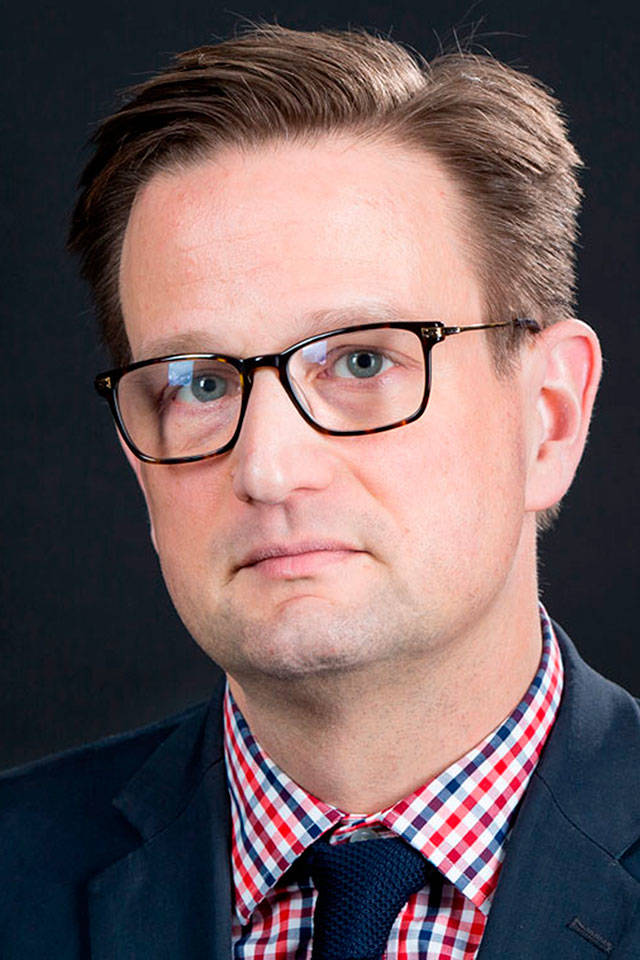WILLIAMSBURG, Va. – It’s a rainy and humid afternoon in mid-August and General George Washington, commander of the Continental Army, and I are talking about what a new nation called the United States of America is going to do about the “peculiar institution” of slavery now that it’s won its freedom from England.
Or rather, I’m having the conversation with Ron Carnegie, a historical interpreter at Colonial Williamsburg, who’s spent years portraying, well, the Foundingest of all the Founding Fathers.
Washington, he tells me, struggled with slavery, even though he owned slaves for 56 years. As president, he stayed publicly silent on the subject, expecting that the ugly blight on our national conscience would collapse under its own weight — even though it took decades longer, and a bloody Civil War, for that to finally happen.
(Washington, it should be noted, freed his slaves in his will, making him the only Founding Father to do so.)
It’s a hugely engrossing conversation. And time melts away as Carnegie, a deep student of Washington, whose enthusiasm for his subject is beyond contagious, shares his knowledge.
It was one of many conversations over several days I had last week with the historical interpreters who bring this landmark to life for scores of tourists from across the country and around the world.
Colonial Williamsburg’s mission, we’re all told more than once, is to tell “America’s enduring story,” just as it’s been doing since 1926, when the Rev. W.A.R Goodwin, rector of the Bruton Parish Church here, first pitched philanthropist John D. Rockefeller on his plan to restore Virginia’s colonial capital.
But history isn’t what it used to be.
As multiple news outlets reported earlier this summer, The Colonial Williamsburg Foundation, the non-profit that runs the tourist attraction in Virginia’s Tidewater country, has cut and outsourced dozens of jobs to grapple with $300 million in debt and losses that totaled $54 million at the end of 2016.
It’s a very modern problem for an institution that bends over backwards to make visitors think they’ve crash-landed in an 18th century town.
But as painful as the cuts were, the alternative, “doing nothing,” would mean “the end of this national treasure,” Mitchell Reiss, the foundation’s chief executive officer, wrote in a letter to the Williamsburg community, Bloomberg News reported in late June.
“It would mean the end of our mission,” Reiss wrote.
Walking along the lovingly restored streets, ducking in an out of buildings, and chatting with employees who have, in many cases, been performing their roles for decades, it’s not pleasant to consider an America without Colonial Williamsburg.
Yes, this place is expensive. And, yes, it’s a little kitschy. But it’s also exhilarating.
Because wrapped up in the questions that Carnegie and his colleagues pose to the patrons at Colonial Williamsburg is a very modern, yet still eternal, challenge to the way we think about ourselves as Americans.
They’re questions to go the heart of our national character: How hard would we fight to preserve our own liberty in the face of a tyrannical government? How much do we treasure the right to determine our own fate as a nation? And when that government oversteps, what rights — what duty — do we have as citizens to rein it back in again?
The questions are open-ended enough to allow each visitor to answer them according to his or her own political leanings and philosophy.
A conservative visitor, for instance, might agree with Jefferson that a limited federal government, one with very tightly prescribed powers, is the most preferable form of government.
They might also agree with Jefferson’s observation to James Madison, in 1787, that “a little rebellion, from time to time, is a good thing.”
A more traditionally liberal visitor, meanwhile, might agree with the federalist George Wythe (the Williamsburg town father who schooled Jefferson in the law), who favored a stronger central government.
They’re the same arguments the Founders had with each other more than two centuries ago. And given our own times and the challenges we face, those questions prompt deep contemplation and provoke active discussion.
So it’s hard to leave this place with anything other than a reawakened passion for our early history, a fresh appreciation for the magnitude of the tale, and just utter awe at the heroic sacrifice that birthed America’s “enduring story.”
It’s also tough to leave here without feeling the weight of your own responsibility to add to that enduring story, as we’re exhorted to do more than once.
Toughest of all, though, is imagining Colonial Williamsburg not being here to help tell it.
An award-winning political journalist, Micek is the Opinion Editor and Political Columnist for PennLive/The Patriot-News in Harrisburg, Pa. Readers may follow him on Twitter @ByJohnLMicek and email him at jmicek@pennlive.com.



